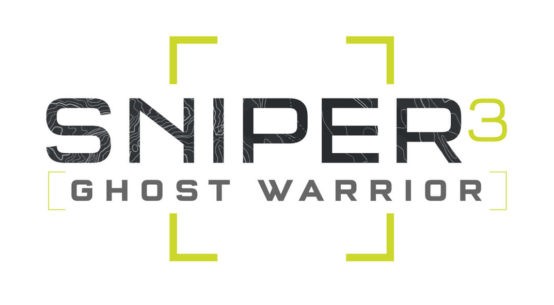
Article by Alyx Jones
The lovely sunshine illuminated the Guildhall School of Music and Drama today as BASCA hosted their Media Composers Conference.
The first panel consisted of Laura Rossi, Andrew Skeet, Rich Aitken, Simon Ashdown and John Warhurst, and were discussing the team of people who work behind the composer, creatively and technically. Rich said that his role is of mastering is often more of a political role and recommends if composers can afford it at all, to pay for mixing. If they really can’t then at least pay to book out a good listening room for themselves to help them mix, as most composers as expected to be able to do this on lower budget projects. John recommended a really important thing was to know Pro Tools really well if you want to be a music editor. Andrew added with whatever budget you do have try and get live musicians, even if it just one live player, it breathes life into the track. There was also discussion about how “Striping” (having stems separated) has become normal in Film/TV deliverables.
Second up we had the games composers, starting out by talking about how they got into the industry, with Jessica Curry on one end saying she never realised game music was something she could do, with a disconnect from the “testosterone fuelled First Person Shooter style games”, and on the other end James Hannigan who quit his university course early to start a job at EA as a full-time in house composer! Everyone on the panel also worked in other mediums aside from video games. Tess Tyler said for a composer, it’s important to be able to write a short 4 bar loop for example, and have a small “golden nugget” of music. Joris de Man said for his work on Horizon Zero Dawn, the music was all stemmed out and when helping to make the music work alongside sound effects, the studio were specific about not wanting music overpowering in a certain register. He also said the variation and dynamics in his music hints at a higher level of interactivity than there actually is, as the player naturally connects their gameplay to the music.

The next panel was about music supervisors are looking for and how best to secure sync deals with Mark Ayres, Dan Neale, Laura Harrison and Michelle DeVries. Laura said she likes to create mood boards for music when they’re longer projects but sometimes they might only have two weeks to deliver. Everyone on the panel agreed that they mostly discovered composers, by them already being known, or by them sending showreels in, but a lot of it can be about luck and timings. Dan also said that tracks with lyrics are very popular to clients as it grabs their attention even if the lyrics are often taken out when it comes to placing the music. They also all agreed how important it was to have a visual showreel if you want to score to picture in order to demonstrate that ability.
Next up was about Surviving as a Media Composer with Kevin Sargent, Tom Hodge, Nainita Desai, Rob Lane and Dan McGrath. Rob talked about how important it is to let go of your ego, in aid of the overall project but to fight your corner if it does really matter to you. Kevin said always try and get a meeting in person to talk about a prospective project if you can rather than just pitching blind. It adds that personal element, that everyone is looking for and sets you apart. Kevin added, don’t be too user-friendly, but equally don’t be a premadonna. On getting past creative block, Rob suggested writing something, even if it’s rubbish and “failing upwards” and Dan suggested that collaboration is good, as well as actively listening to things you want to achieve.
Penultimately, was a panel about production music and how it can offer a good income and flexibility in everyday life. Chairing was Marc Sylvan, joined by Sarah Pickering, Natalie Dickins, Caspar Kedros and Dan Graham. Dan began by describing how he started out by sending a lot of music to people, even with a few responses out of hundreds, that’s all you need to get started. Natalie said they were two main paths a composer could take, offering music licensing or a bespoke service. Sarah said that most client now want stems, even in library music so they can use it or remix it however they need to. Natalie said when working on your demo reels, don’t loop production music and don’t use fades (clients will fade it themselves if they want to). Sarah added not to say you do every genre of music, but to say these are my best few, where my skills really shine through. Caspar said it’s no longer acceptable to just use leftovers from a project, libraries want specific good music.

Finally was the keynote conversation with Rachel Portman, the first female composer to win an Academy Award and appointed an OBE in 2010. She talked about her beginnings, of having a musical injection during her childhood and teenage years, but that during her 20s sometimes the work was few and far between. She kept part-time jobs waitressing to pay the bills, while working on music (something a lot of us can relate to!). Rachel doesn’t really use much technology, how buy viagra without prescription and she says even though she lacks music theory skills, sometimes it can work to her advantage because she doesn’t compose in a theoretical way. She says she sits quietly at the piano, begins to meditate, and then plays. She doesn’t always know exactly what to write, but she says she knows what doesn’t work, so it’s easy to discard material she doesn’t like.
Overall it was a really lovely day, with a good variety of speakers, from different backgrounds and working in quite an array of disciplines. There’s some great tips and advice for composers starting out, but also interesting points and topics of conversation for those further along in their career. Of course the networking at lunch and at the end of the day is invaluable, whatever point in your career you are. It’s always worth getting out of the studio and talking to others, it can really help to inspire your next steps and further your work!
If any of this was valuable to you, please consider joining BASCA (British Academy of Songwriters, Composers and Authors). They campaign for your rights, put on amazing events like this, award incredible individuals for their work and are entirely self-funded, so rely on support from all of us. Thank you!
LINKS
Official
We hope you enjoyed Alyx’s review, check out others in our Reviews section. Don’t forget to sign up to our Monthly Newsletter to make sure you don’t miss out on our reviews and interviews.
We’re also running a Patreon campaign to make sure we can keep bringing you regular, high quality content if you’re feeling generous! Thanks for even sharing!
The Sound Architect




